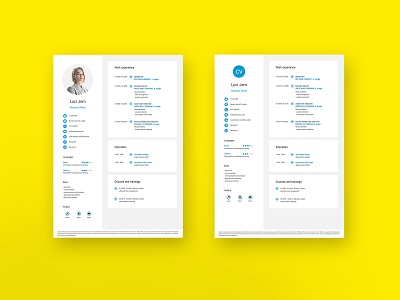A gap in the CV. How to talk about it?

Recruitment is a competition. Your qualifications and work experience are compared with those of other candidates. In this process, your is your showcase and the CV first impression is the most important.
If you thought so far that the recruiters who will get your application documents in their hands will only take a look at your CV and miss the fact that you have not worked for a long time, unfortunately - you were wrong. The employment gap may lower your job race, but it doesn't have to. It all depends on how skillfully you explain it.
To explain why you were unemployed, you first need to understand why employers are afraid of gaps in the CVs of candidates for the position they offer:
- Firstly, a long hiring pause means that you have less experience than others interested in the job in the same age group, and therefore you are applying for a job that you are actually not ready for. This makes your candidacy risky.
- Secondly, if you have been out of work for a long time, it may suggest that you have health problems that the company may not want to deal with.
- Thirdly, employers may be concerned that you may not be qualified because you have gone out of business , even when it appears to be the case. If no one has given you a chance before, why would they?
- Fourthly, in some areas, a large gap may create a risk that you are not up-to-date with the current knowledge necessary to practice your profession.
- Fifthly, the lack of continuity of employment combined with high qualifications may suggest to the employer that you are ready to quit your job at any time to pursue yourself, for example by traveling. This raises concerns that you are not committed to a particular employer and job in general, and it causes the company to lose interest in your candidacy.
So how to write a correct CV and a cover letter? If you ignore gaps in your CV, the imagination of recruiters will start to work and multiply your guesses. So it is better to shed light on the situation than to let the employer accept the worst.
Whether you stopped working after your baby was born, had to quit your job to care for a sick relative, or you started to pursue your passions during this time, there is always a way to turn it to your advantage. All the experiences you have gained during this time can make you a better candidate for a job. Even if you have had to leave your job for personal reasons, even if you have been fired, if you go to the interview with the right attitude and a few carefully crafted answers, you will still have a chance to present yourself as the right person in the right place.
Be prepared
If you have had a break, you can be sure your employer will ask about it as they will be curious about what you were doing during that time. Prepare for that by carefully working out your explanation to be confident and without a shame. Consider the different scenarios how your employer might react to them and prepare your own arguments to defend your situation.
Be honest
If you have gaps in your curriculum vitae that require an explanation, just tell the truth and give a reason. Lying is a really bad idea. One of the most common mistakes in a CV is falsifying employment dates to extend the working period. However, inquisitive employers may want to verify your history, and the fraud may deprive you of your chances of finding a position or may be grounds for dismissal if you manage to get a job.
An honest explanation of the situation gives the employer a feeling that they can trust you as an employee.
Find the value of
Whatever the reason for the interruption, you will always find some value in it. It's important for your employer to see that this was a period of personal and professional development for you, not just a downtime. Your explanation should prove that you were not inert.
Being a stay-at-home mom, odd jobs, a failed business, illness or volunteering - also presented you with challenges that you had to face. Show how you can use the acquired skills in the position you are applying for - make the employer notice this value as well.
Give a guarantee
Employers, when looking for the best candidate for a job, put a lot of time and effort into it. What they expect is a guarantee that their work will not be wasted. They need an employee with whom they will work for a longer period of time. Reassure your employer that, despite your previous lack of job, there is nothing now to prevent you from being fully engaged in work. If you have been sick or have had a serious car accident, say you are already in good form, otherwise the recruiter may wonder if you are fully fit for the position. If you had family reasons, convince them that the troubles are averted. Tell your story to show why the break won't happen again.
How do you explain employment gaps so that they don't torpedo your job search? A thorough explanation of the circumstances can help, but only if you receive an interview invitation. How not to write a CV so that it would not be rejected at the start. Don't leave your CV to chance. Use the free online CV creator and do not let the gaps distract from the fact that you are qualified and ready to go to work.



